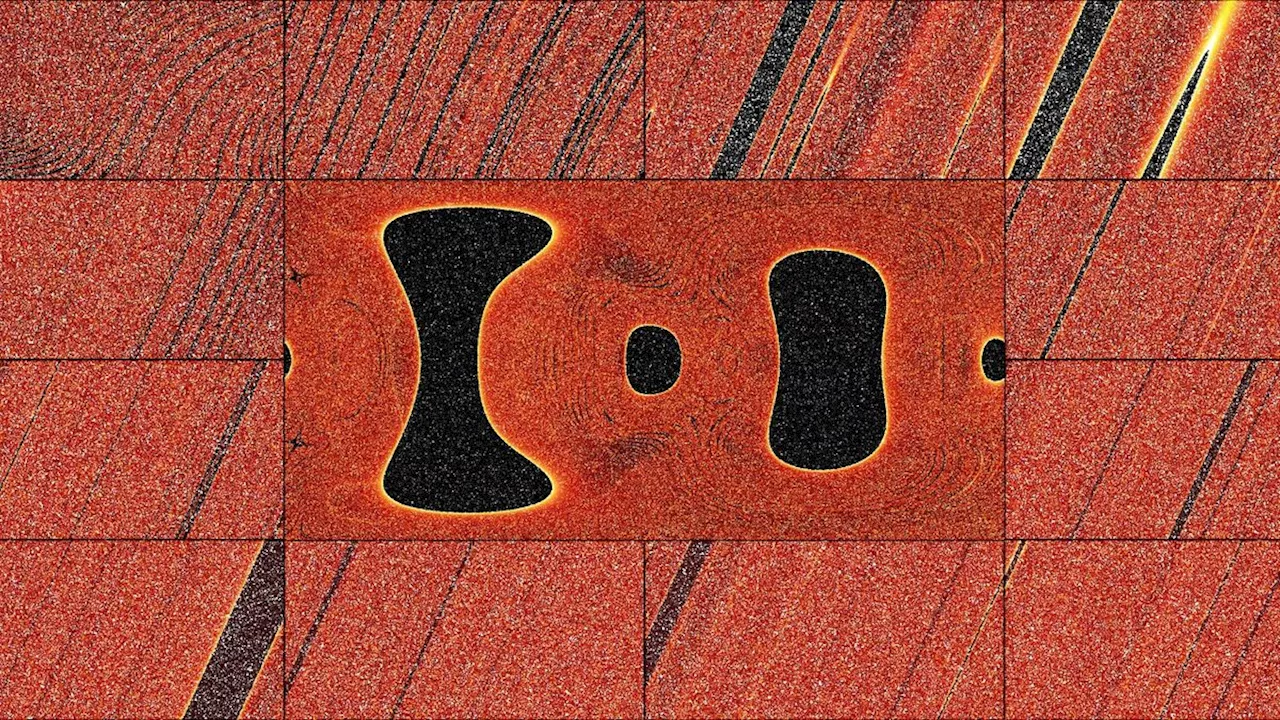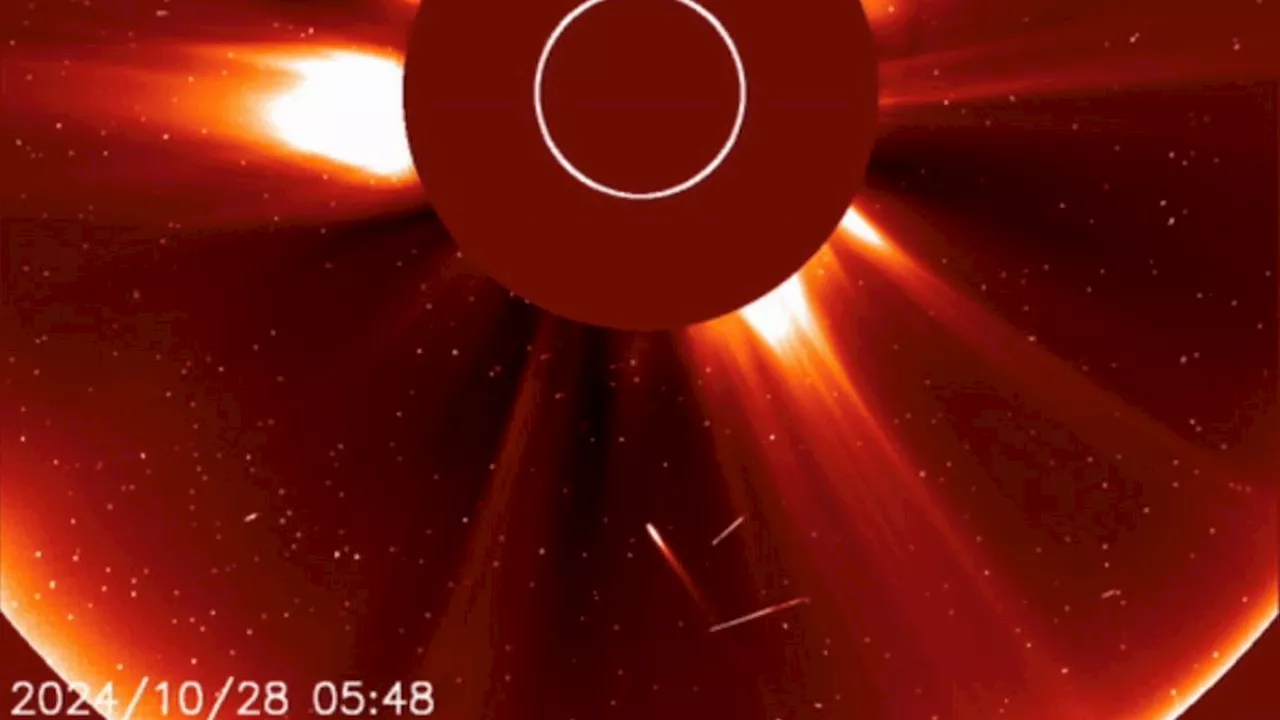Brett is curious about emerging aerospace technologies, alternative launch concepts, military space developments and uncrewed aircraft systems. Brett's work has appeared on Scientific American, The War Zone, Popular Science, the History Channel, Science Discovery and more.
Jam packed issues filled with the latest cutting-edge research, technology and theories delivered in an entertaining and visually stunning way, aiming to educate and inspire readers of all agesAnother fireball lit up the skies this week, this time over the U.S. Midwest and parts of Canada — but unlike the last one, this one came from outer space.burned up on the morning of Nov. 13, around 6:31 a.m. Mountain Standard Time .
A video of a meteor on Nov. 13, 2024 captured by Matthew Craig and submitted to the American Meteor Society.Based on the videos and eyewitness reports submitted to the American Meteor Society , this appears to have been a brilliant fireball. of Alberta, Canada."There was a greenish streak and then a very bright flash. The streak continued but shrunk in brightness. Then there was a secondary smaller and dimmer flash along the same meteor trail. This all occurred within 2 seconds or so.
An image of a fireball captured by the GLM on @NOAA's #GOESEast .Read more about how #GLM tracks meteors: https://t.co/qm3r6bK7Cx https://t.co/8v0t7Rwz9q pic.twitter.com/eWKPclyzNjMeteors like this one become visible when small pieces of space dust that come from As they journey through the atmosphere, these small specks of space dust collide with particles of air, which generates friction and produces heat. That heat then vaporizes most meteors, creating the bright streaks of light we see zoom across the sky., which will unfortunately peak on Nov. 16 under a bright moon which will make seeing them more difficult.
Brett is curious about emerging aerospace technologies, alternative launch concepts, military space developments and uncrewed aircraft systems. Brett's work has appeared on Scientific American, The War Zone, Popular Science, the History Channel, Science Discovery and more. Brett has English degrees from Clemson University and the University of North Carolina at Charlotte. In his free time, Brett enjoys skywatching throughout the dark skies of the Appalachian mountains.
United States Latest News, United States Headlines
Similar News:You can also read news stories similar to this one that we have collected from other news sources.
 Scientists have built an AI-powered 'electronic tongue'Skyler Ware is a freelance science journalist covering chemistry, biology, paleontology and Earth science. She was a 2023 AAAS Mass Media Science and Engineering Fellow at Science News. Her work has also appeared in Science News Explores, ZME Science and Chembites, among others. Skyler has a Ph.D. in chemistry from Caltech.
Scientists have built an AI-powered 'electronic tongue'Skyler Ware is a freelance science journalist covering chemistry, biology, paleontology and Earth science. She was a 2023 AAAS Mass Media Science and Engineering Fellow at Science News. Her work has also appeared in Science News Explores, ZME Science and Chembites, among others. Skyler has a Ph.D. in chemistry from Caltech.
Read more »
 The '3-body problem' may not be so chaotic after all, new study suggestsSkyler Ware is a freelance science journalist covering chemistry, biology, paleontology and Earth science. She was a 2023 AAAS Mass Media Science and Engineering Fellow at Science News. Her work has also appeared in Science News Explores, ZME Science and Chembites, among others. Skyler has a Ph.D. in chemistry from Caltech.
The '3-body problem' may not be so chaotic after all, new study suggestsSkyler Ware is a freelance science journalist covering chemistry, biology, paleontology and Earth science. She was a 2023 AAAS Mass Media Science and Engineering Fellow at Science News. Her work has also appeared in Science News Explores, ZME Science and Chembites, among others. Skyler has a Ph.D. in chemistry from Caltech.
Read more »
 Chemists broke a 100-year-old rule to make extremely unstable moleculesSkyler Ware is a freelance science journalist covering chemistry, biology, paleontology and Earth science. She was a 2023 AAAS Mass Media Science and Engineering Fellow at Science News. Her work has also appeared in Science News Explores, ZME Science and Chembites, among others. Skyler has a Ph.D. in chemistry from Caltech.
Chemists broke a 100-year-old rule to make extremely unstable moleculesSkyler Ware is a freelance science journalist covering chemistry, biology, paleontology and Earth science. She was a 2023 AAAS Mass Media Science and Engineering Fellow at Science News. Her work has also appeared in Science News Explores, ZME Science and Chembites, among others. Skyler has a Ph.D. in chemistry from Caltech.
Read more »
 New memory chip controlled by light and magnets could one day make AI computing less power-hungrySkyler Ware is a freelance science journalist covering chemistry, biology, paleontology and Earth science. She was a 2023 AAAS Mass Media Science and Engineering Fellow at Science News. Her work has also appeared in Science News Explores, ZME Science and Chembites, among others. Skyler has a Ph.D. in chemistry from Caltech.
New memory chip controlled by light and magnets could one day make AI computing less power-hungrySkyler Ware is a freelance science journalist covering chemistry, biology, paleontology and Earth science. She was a 2023 AAAS Mass Media Science and Engineering Fellow at Science News. Her work has also appeared in Science News Explores, ZME Science and Chembites, among others. Skyler has a Ph.D. in chemistry from Caltech.
Read more »
 'Edge of chaos' neuroscience theory could lead to superfast computing chips that behave like superconductorsSkyler Ware is a freelance science journalist covering chemistry, biology, paleontology and Earth science. She was a 2023 AAAS Mass Media Science and Engineering Fellow at Science News. Her work has also appeared in Science News Explores, ZME Science and Chembites, among others. Skyler has a Ph.D. in chemistry from Caltech.
'Edge of chaos' neuroscience theory could lead to superfast computing chips that behave like superconductorsSkyler Ware is a freelance science journalist covering chemistry, biology, paleontology and Earth science. She was a 2023 AAAS Mass Media Science and Engineering Fellow at Science News. Her work has also appeared in Science News Explores, ZME Science and Chembites, among others. Skyler has a Ph.D. in chemistry from Caltech.
Read more »
 Watch the 'Halloween comet' ATLAS burn up as it flies into the sunBrett is a science and technology journalist who is curious about emerging concepts in spaceflight and aerospace, alternative launch concepts, anti-satellite technologies, and uncrewed systems. Brett's work has appeared on The War Zone at TheDrive.com, Popular Science, the History Channel, Science Discovery, and more.
Watch the 'Halloween comet' ATLAS burn up as it flies into the sunBrett is a science and technology journalist who is curious about emerging concepts in spaceflight and aerospace, alternative launch concepts, anti-satellite technologies, and uncrewed systems. Brett's work has appeared on The War Zone at TheDrive.com, Popular Science, the History Channel, Science Discovery, and more.
Read more »
